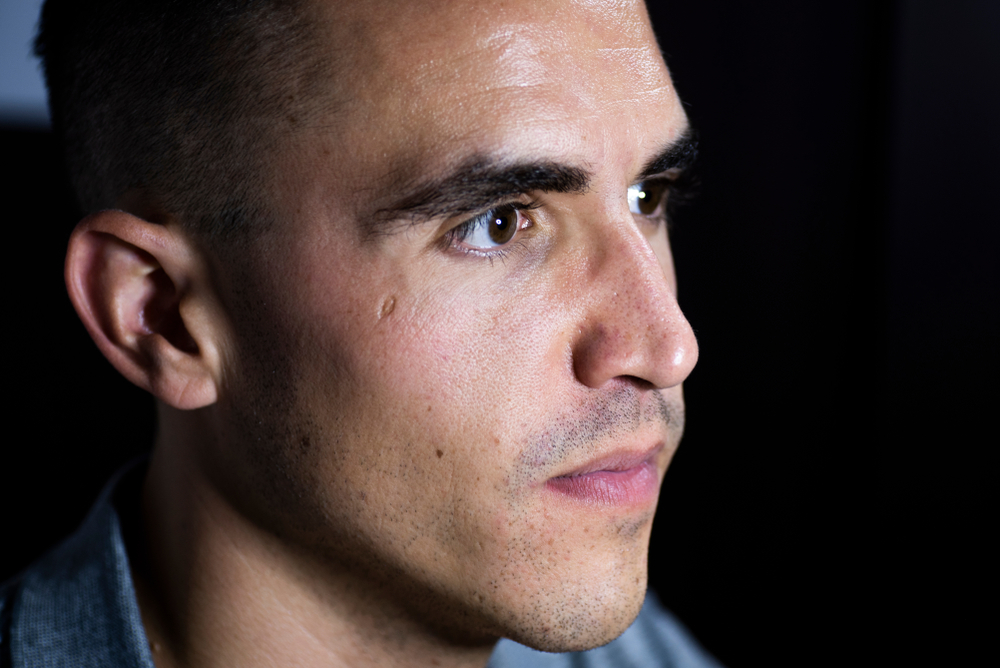We all know someone we can’t stand to be around. Whether they’ve done something to hurt us in the past or their personality doesn’t align with ours, it isn’t easy knowing that you could bump into them at the grocery store. But what if you knew you could learn many important lessons from disagreeable people? Here are 15 of them.
1. Hurt people hurt people.

This is a classic saying, so much so that you’ve probably heard of it before and certainly used it. It might be cliche, but it rings true—those in our lives who hurt us do so because they’re hurting themselves. This window into their introspective reality might help you learn compassion as you try to see them from a different angle.
2. Listening is important.

Did they listen to you the last time you had a confrontation with someone you can’t stand in your life? Or, did they talk over you and only try to get their point across? If it’s the latter, then there’s an important lesson here. To be a good friend, you’ve got to be a good listener. Everyone needs the space and opportunity to communicate their feelings about something.
3. Their issue is not your resentment.

If the person in your life you can’t stand did something egregious to you, you might still be holding it against them. You’ve tried to forgive them, but you have found this incredibly tough — it’s much easier to hold on to your grievances. The trouble is that your resentment harms you more than it does them. When you let go of your grudge, that person no longer has a hold on your life, and you can move on.
4. It pays to be introspective.

How much is the person you can’t stand the way they are because they’re not self-aware? If you answered zero, then there’s a lesson in this. If you don’t want to turn into the person you find difficult, it’s sometimes necessary to reflect on yourself and see what needs improving.
5. Trust is earned, not given.

Perhaps the person you can’t stand is in that position because they betrayed your trust. You were more naive in the past and easily gave away your trust. It wasn’t until you met and dealt with this person that you realized that trust is earned, not automatically given out. Make sure to guard your heart against more hurt in the future.
6. Don’t match anger for anger.

This is just as important as ensuring you don’t hold anything against the person you can’t stand in your life. Just because they think they have the right to be angry at you doesn’t mean that you should stoop to their level. Through your actions, show them how they should treat others instead.
7. You don’t have anything to prove.

You might have grown up thinking that you had something to prove — to your parents, to your college professors, to your boss, to life itself. You certainly felt you had something to prove to the person you couldn’t stand — until you didn’t. Now that you’ve cut ties with them, you realize you don’t have anything to prove, which applies across all relationships in your life.
8. It’s essential to trust your gut.

How often have your instincts steered you wrong in the past? There might be a couple of examples, but for the most part, they’ve helped you, right? Perhaps this person you can’t stand hurt you because you ignored your gut feeling about them. Now, you will put your instincts before your feelings, no matter the situation, Harvard Business Review urges.
9. Sharing your feelings is important.

Even if you have decided to let this person go and move on with your life, you might still be emotionally scarred from the ordeal. This is why it’s essential to talk to someone. Whether you’re feeling embarrassed, angry, ashamed, or humiliated by what happened, opening up about your feelings to someone — whether it’s a therapist or a close friend — is an important step in the healing journey.
10. Making time for yourself is essential.

Another important lesson you can learn from someone challenging is that time for yourself is of the utmost importance. They might have made you believe that you were worthless or not good enough for anyone. Now that you know not to believe this, putting yourself first and taking time out of life to reset is essential.
11. Don’t be too hard on yourself.

If you recently had a confrontation with the person in your life you don’t like, you might replay the conversation again and again in your mind, replaying moments of it that you regret. You might be kicking yourself about things you forgot to mention and wishing you hadn’t said others. However, it’s important not to be too critical of yourself. You did the best you could in the moment.
12. Parenting is the most important job.

One unexpected lesson you can learn from the person you can’t stand is that parenting is the hardest job in the world—but also the most important. They could very well be the way they are because they had a rough childhood, and for whatever reason, their parents didn’t do the greatest job. If you want to avoid repeating their parents’ mistakes, it’s important to learn this lesson.
13. Life is complicated.

When you were younger, you might have been able to see life through blemish-free lenses. There weren’t any stains, streaks, or cracks — the outlook was clear and straightforward. Now, though, after dealing with people like the person you can’t stand, you’re starting to realize it’s important to accept that life is nuanced. People are complicated, and not all situations are black and white.
14. We all have demons.

It’s easy to see the speck in the other person’s eye and not the log in our eye, but the reality of life is that we’ve all got our downfalls. When dealing with a difficult person, we often automatically feel superior, feeling relieved we’re not like that. However, we could be more similar than we think.
15. You could work on your hot buttons.

Take a moment to reflect on how the person you can’t stand has frustrated or hurt you. Is it something you didn’t deserve, or is it because they pushed one of your buttons? Learning about your buttons and what pushes them goes a long way in becoming a better partner and person in general.



